'People will never forget what I've done' – meet the genocide survivor who made cycling history for Rwanda
Rwandan national cycling icon Adrien Niyonshuti tells Tom Davidson about his extraordinary journey

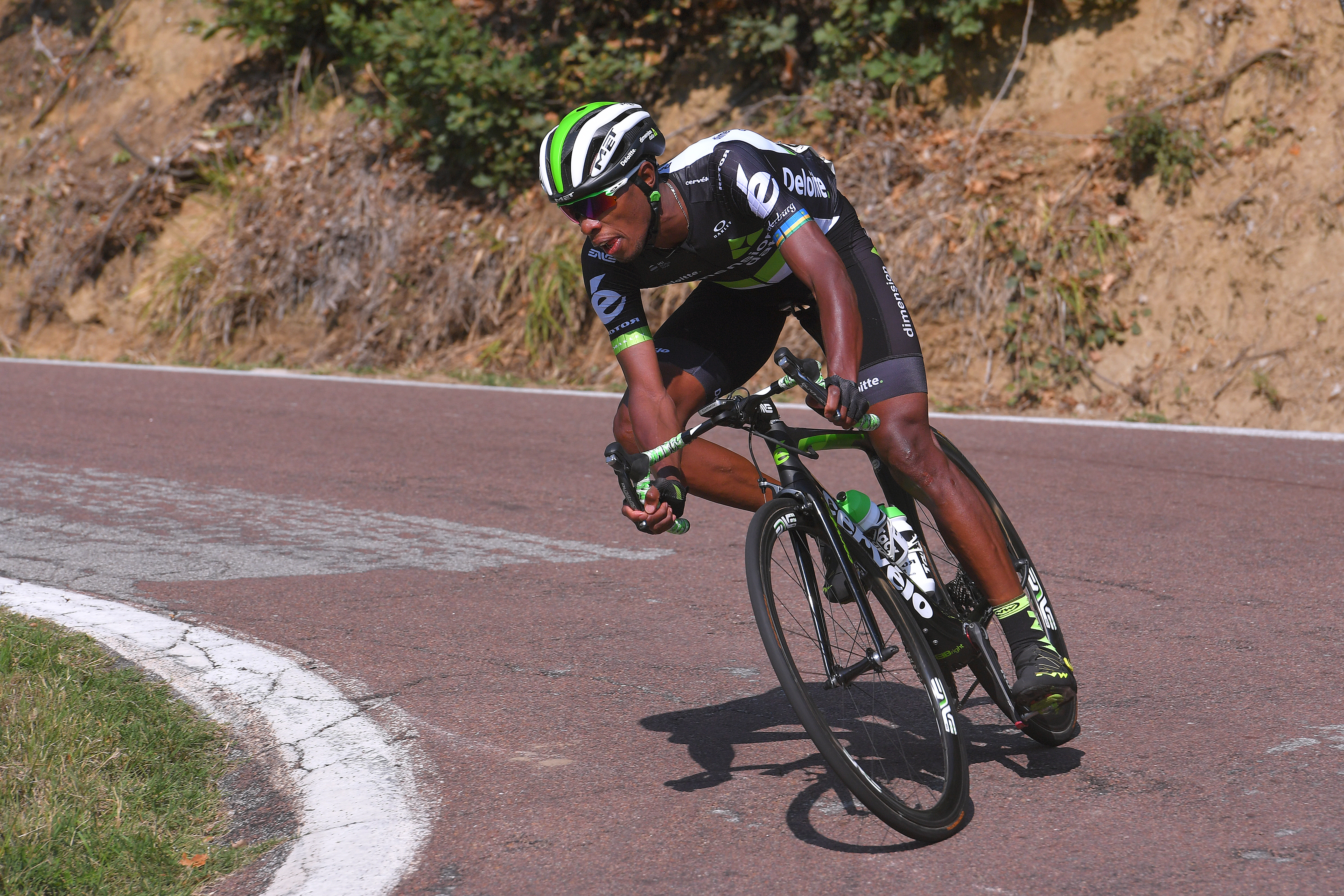
This feature originally appeared in Cycling Weekly magazine on 11 September 2025. Subscribe now and never miss an issue.
When Adrien Niyonshuti stops pedalling, the past comes rushing back. He used to get headaches akin to withdrawal symptoms if he didn’t ride his bike for a few days. Cycling has been his escape, his way to silence the memories that once threatened to consume him. “I look forwards over my front wheel,” he says. “It takes a couple of minutes before you forget everything and just enjoy what you’re doing.”
Niyonshuti was seven years old when the militia surrounded his home in Rwamagana, eastern Rwanda. It’s a memory that now, more than 30 years on, he’s still reluctant to discuss. “I don’t like to go in deeper, but I will say in brief,” he begins. “In 1994, something happened, and we went to hide.”
The Rwandan genocide had begun that April, and lasted 100 days. Groups of Hutu extremists went from house to house with machetes and slaughtered an estimated 800,000 people, most of whom were from the Tutsi ethnic minority. Six of those killed were Niyonshuti’s brothers.
With militants closing in, his parents rushed him to hide among the trees near their family home. They stayed there for days, surviving on whatever food and water they could find. “It was not an easy life,” Niyonshuti, now 38, says. As per his cycling mantra, he prefers to look forwards. “Life goes on. We have a good country. We are holding the World Championships. The past is the past, but we learn from the past, and we build our country.”
Later this month, Rwanda will become the first African country in the UCI’s 125-year existence to host the road cycling World Championships. Niyonshuti feels the significance of the occasion. “It’s something we won’t forget. We’re making history,” he tells Cycling Weekly from his home in Lucca, Italy. He has lived in Tuscany for over a decade, more than 3,000 miles as the crow flies from his birthplace of Rwamagana. The trauma he experienced as a child has not defined him; instead, Niyonshuti is Rwanda’s most successful cyclist, and the only rider from his country to ever compete at the sport’s highest level, the WorldTour. His story is one of unparalleled resolve, dedication, and belief. It started with one of his uncle’s old bikes.
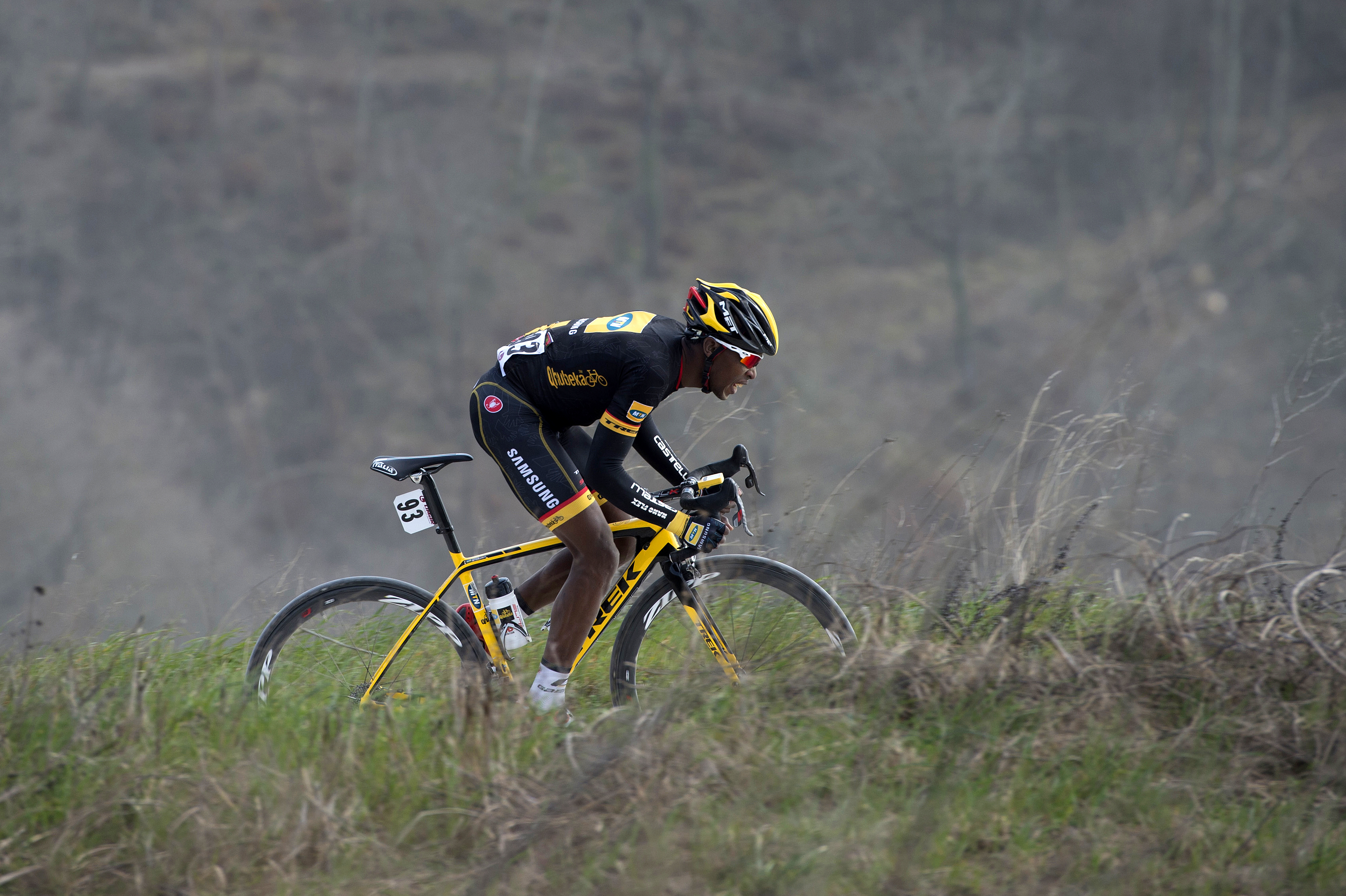
Emmanuel Turatsinze, the brother of Niyonshuti’s mother, was a well-known cyclist in Rwanda. “After the genocide, he told me, ‘Adrien, I lost my children. They should have been cyclists. But you, my nephew, I want to see you cycling’,” Niyonshuti recalls. “He never saw me start to race because he passed away in 2002.”
The latest race content, interviews, features, reviews and expert buying guides, direct to your inbox!
Aged 16, Niyonshuti inherited his uncle’s steel bike, and cycling quickly became a form of therapy. As the wheels turned forwards, he found, the past vanished in the dust behind. Riding helped him forget.
With his parents’ support, the teenager trained to become one of the top talents in his country, racing his first Tour of Rwanda in 2004.
At the end of 2006, he had a life-changing encounter. Niyonshuti met former pro Jock Boyer – the first American to compete in the Tour de France – who had come to Rwanda to help run a village bike race, but ended up staying to coach the national team. The story became the subject of the 2012 documentary ‘Rising from Ashes’, in which Niyonshuti, the plucky rider with the greatest potential, found himself the protagonist. “I had the goal to compete in the Olympics,” he says. That drive formed the premise of the documentary, and the purpose of the young Rwandan’s life.
Under Boyer’s mentorship, Niyonshuti jumped at every chance to race abroad. He competed in the Cape Epic mountain bike race in South Africa for the first time in 2007, the US Tour of the Gila that same year, and returned to Rwanda in 2008 to win his national stage race, just five years after picking up cycling. That victory, Niyonshuti now says, “opened the door to becoming a professional rider”, and in 2009, he signed for MTN Energade, the road team he would stay with for nine years as it morphed into MTN Qhubeka and WorldTour-level Dimension Data.
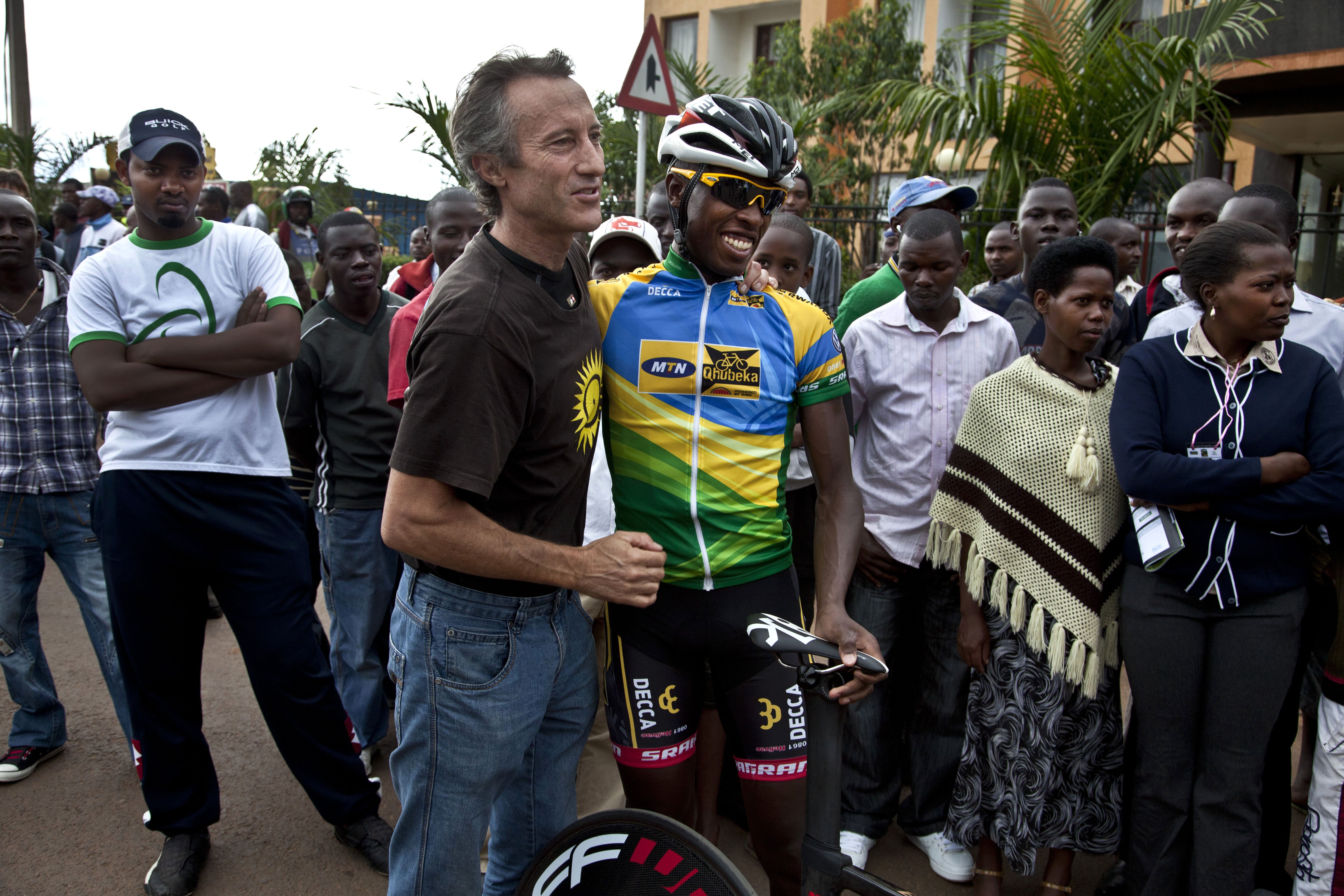
Over the first few years of his career, Niyonshuti combined mountain bike and road cycling calendars, with his sights set on the Olympics. He methodically sought to pick up qualifying points for London 2012. That ticket was sealed with a fourth-place finish in the cross-country mountain bike race at the 2011 African Continental Championships. Not only would Niyonshuti become an Olympian – Rwanda’s first ever mountain biker at the Games – he’d also hold the flag for his country at the opening ceremony.
“It was a really amazing experience I will never forget,” he says. His finishing position – 39th – was almost immaterial. “It was just a dream to start the race,” he adds. “My goal was to finish the race, and I made it. It’s something very close to my heart.” Four years later, at the Rio Olympics in 2016, he qualified for the road race, and was again honoured as Rwanda’s flagbearer. Though he did not finish this time, his compatriots still hailed him as a hero.
The following year, after two seasons as a WorldTour domestique, Niyonshuti’s contract with Dimension Data came to an end. He retired in 2018 with four national titles to his name, split two apiece between the road race and time trial. But that wouldn’t be the end of his cycling journey.
In between his two Olympic appearances, Niyonshuti had founded his own cycling academy. After his road career ended, he dedicated himself time to helping young Rwandans follow in his footsteps. One of those who joined was his younger cousin Eric Muhoza, the son of his uncle Emmanuel. “What my uncle shared with me, I shared with his child,” Niyonshuti says.
Muhoza holds special memories of his years training under his cousin’s tutelage. “He’s my family and I want to be like him,” the 23-year-old says. “When I was younger, he told me, ‘If you go to a race, don’t give up. It’s better to finish behind the riders than to not finish. You have to finish the race.’” It’s the same attitude Niyonshuti held throughout his career. “All the Rwandans now want to be like Adrien,” Muhoza adds. “They want to race for WorldTour teams.”
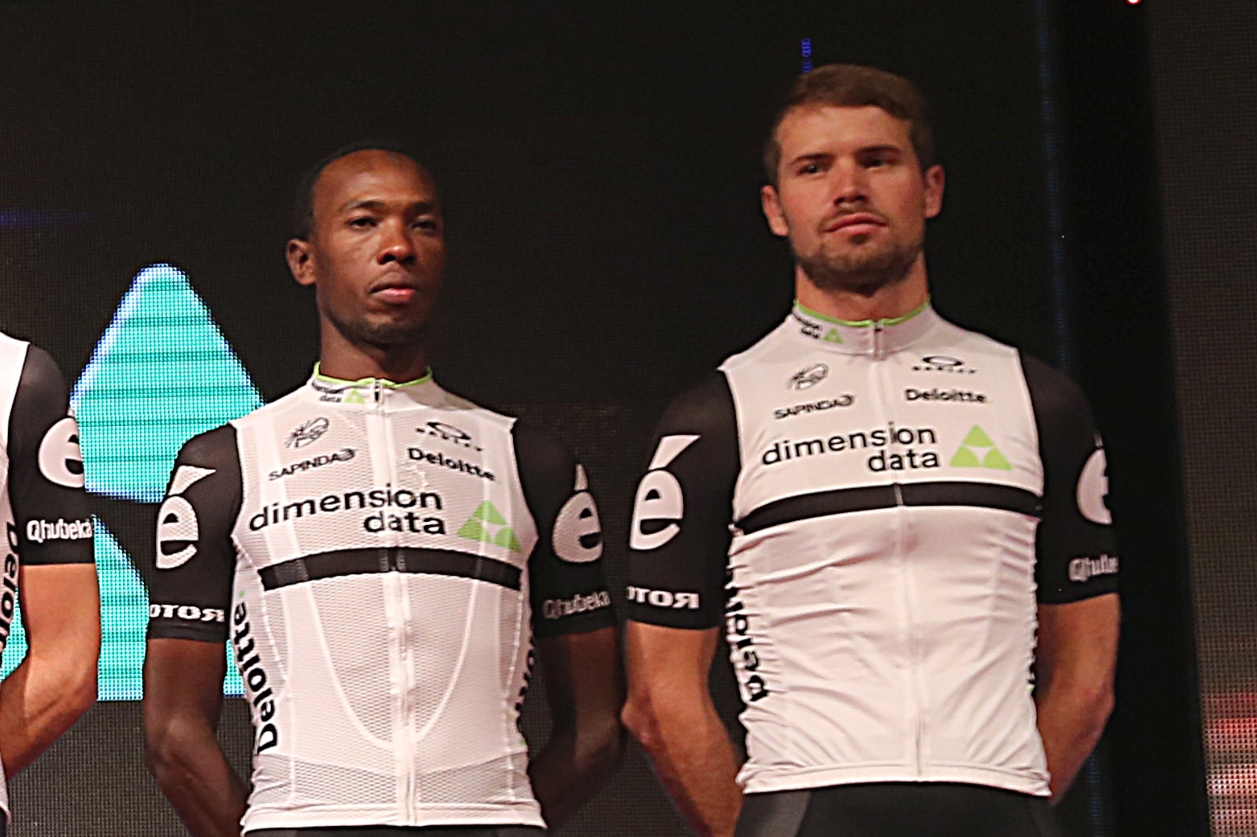
During his nine years at the squad latterly named Dimension Data, Niyonshuti was team-mates with the likes of Daniel Teklehaimanot, Louis Meintjes and Mark Cavendish. One of his closest colleagues was two-time South African champion Reinardt Janse van Rensburg.
The pair first met in 2010, and would go on to race six seasons together. What was Janse van Rensburg’s first impression of Niyonshuti? “Everybody knows his background, where he came from, but what struck me most was how resilient and calm he was,” the South African says. “He almost never got angry at anyone. He was a reassuring presence. When you think about what he’s been through, the violence that he’s seen, and you see how calm he is – he never reacts with any violence – it’s quite an eye-opener.”
Among Janse van Rensburg’s favourite memories riding with Niyonshuti is the 2016 Tour de Langkawi in Malaysia. “He was one of my domestiques that helped me secure overall victory,” he says. “I always thought he’d be a great ultra-endurance rider, or even a modern-day gravel rider, with that hardness he always had, that perseverance.”
The academy launched its own Continental squad in 2020 but, due to the Covid pandemic, the venture was short-lived. Niyonshuti’s main sponsor pulled out, and he couldn’t find a replacement. At the end of 2022, he took the difficult decision to close the academy. “Every day, if I open my WhatsApp, I will have between five and 10 messages from parents asking me how I can help their kids,” he says. “I don’t give up. I think, in the future, I will be back in Rwanda to start again with some other small project.”
In the meantime, though, Niyonshuti is working as the head coach of the Benin national squad. He has held the role since early 2023, and travels regularly from his home in Italy to support the team in west Africa. “In Europe, it’s common for each family to have a bike and learn a lot on the internet. In Africa right now, you still need to have people to share their experiences with you. That’s why I went to Benin,” Niyonshuti says. The goal is to have Beninese cyclists competing at the Olympics, as well as in the biggest UCI races, just as he did.
“People will never forget what I’ve done for the history of cycling in Rwanda,” Niyonshuti says. While he has set many firsts for his country, he doesn’t want to be the last. He anticipates that this month’s World Championships will open “big doors” for the riders he coaches, those in his native Rwanda, and many other aspiring cyclists across the continent. “I hope that in two years, five years, 10 years, we can have 20 more African riders signed for WorldTour teams,” he says. After the trauma of his childhood, Niyonshuti is sticking to his mantra and looking forwards to a hopeful future.
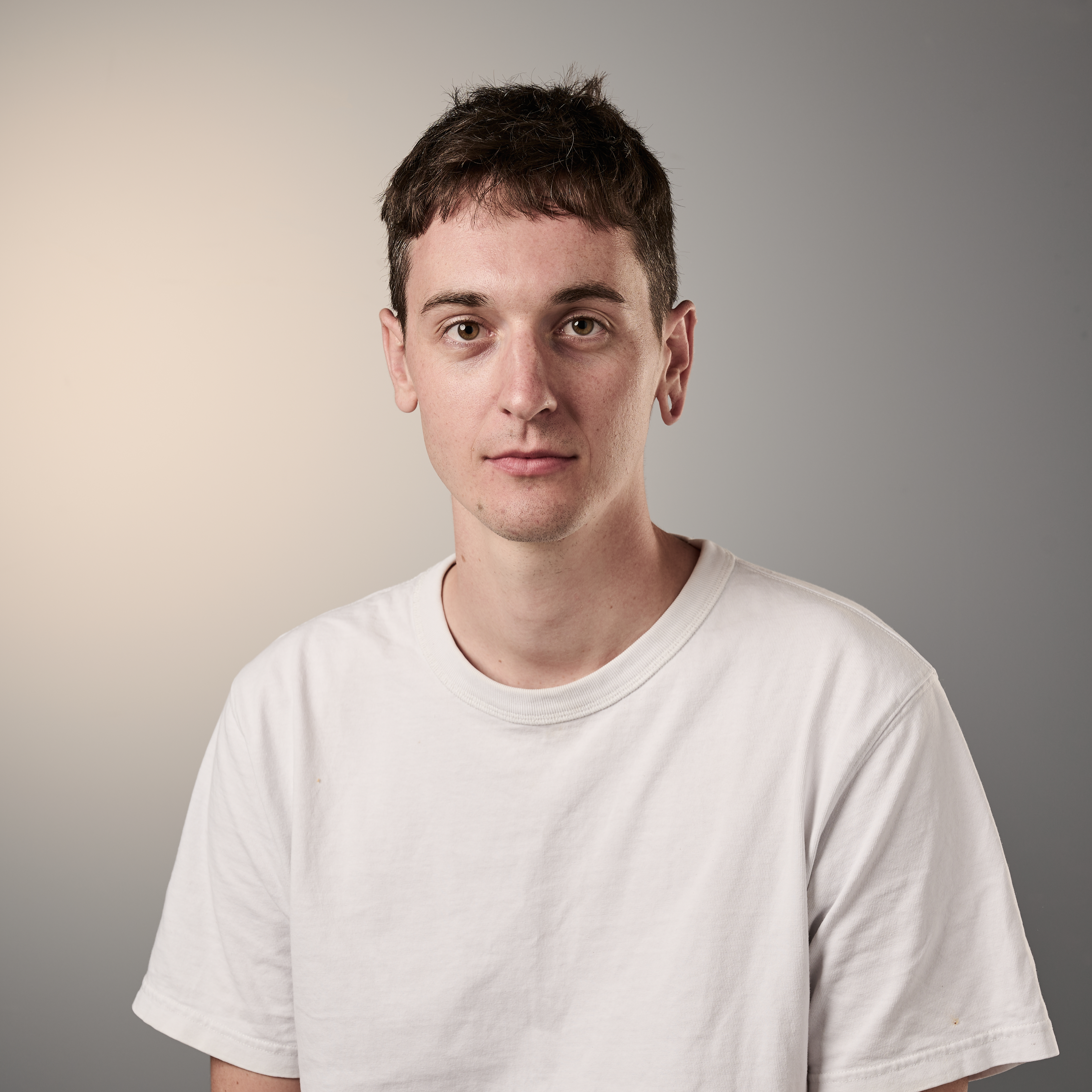
Tom joined Cycling Weekly as a news and features writer in the summer of 2022, having previously contributed as a freelancer. He is fluent in French and Spanish, and holds a master's degree in International Journalism. Since 2020, he has been the host of The TT Podcast, offering race analysis and rider interviews.
An enthusiastic cyclist himself, Tom likes it most when the road goes uphill, and actively seeks out double-figure gradients on his rides. His best result is 28th in a hill-climb competition, albeit out of 40 entrants.
You must confirm your public display name before commenting
Please logout and then login again, you will then be prompted to enter your display name.